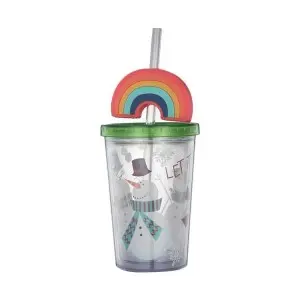Water bottles have become an integral part of our daily lives due to their convenience and portability. However, these bottles are disposed of at an alarming rate, leading to serious environmental consequences. To address this issue, recycling has emerged as an important solution for managing plastic waste. In this blog post, we’ll shed light on how water bottles are recycled and the significant impact it can have on protecting the environment.
Recycling process:
1. Collection and arrangement:
The first step in recycling water bottles is the collection process. Consumers are encouraged to separate plastic waste and dispose of it properly. Once collected, the bottles go through a sorting process, where they are sorted according to the type of plastic material. This step is critical as it ensures the efficiency and effectiveness of the recycling process.
2. Crush:
After sorting, the bottles are torn into small pieces, ensuring easier handling throughout the recycling process. These flakes can be clear or colored, depending on the original color of the plastic bottle.
3. Washing and drying:
The shredded plastic pieces are then washed to remove any impurities or contamination. This step is necessary to maintain the quality of the final recycled product. After washing, the flakes go through a drying process to eliminate any remaining moisture.
4. Melting and production:
Once the flakes dry, they melt and form small particles called granules. These wood blocks can be used as raw materials for the production of various products, including new water bottles. The melting process enables the plastic to be reshaped into different shapes and forms, giving it a second life.
5. Manufacture new products:
These pellets are then shipped to manufacturing plants, where they are used to make a variety of goods. These products include not only water bottles, but also clothing, furniture, packaging and many other plastic items. By converting recycled plastic into new products, we help reduce the need for virgin materials and minimize the environmental impact of plastic production.
environmental impact:
Recycling water bottles has several environmental benefits and makes a significant contribution to a more sustainable future:
1. Reduce waste in landfills:
By recycling water bottles, we can prevent them from ending up in landfill, as they take hundreds of years to decompose. This reduces the pressure on our limited landfill space and helps to manage waste efficiently.
2. Save energy:
The process of recycling plastic water bottles requires less energy than producing new plastic water bottles from raw materials such as petroleum. This energy saving helps reduce greenhouse gas emissions and reduces our overall carbon footprint.
3. Conservation of natural resources:
Recycling water bottles reduces the need to extract and process virgin materials such as crude oil or natural gas. As a result, we can protect valuable natural resources and reduce environmental damage from extraction.
4. Prevent pollution:
Discarded water bottles often find their way into bodies of water, causing pollution and posing a threat to marine life. Recycling reduces plastic waste and minimizes the chance of bottles entering oceans and rivers.
Recycling water bottles plays a vital role in mitigating the environmental impact of plastic overconsumption. By understanding the recycling process and taking an active part in proper disposal, we can contribute to a more sustainable future. Through recycling, water bottles can be transformed from a threat to the environment into a valuable resource that can be used to produce new and useful products. Let’s continue to make a difference, choose to recycle, and create a greener planet for generations to come.
Post time: Jul-31-2023
